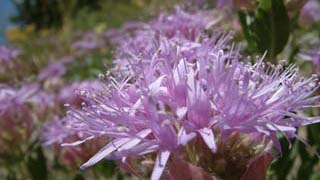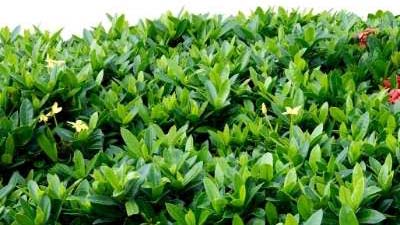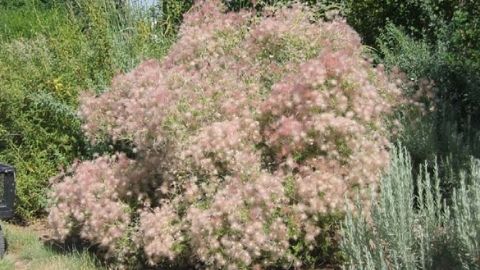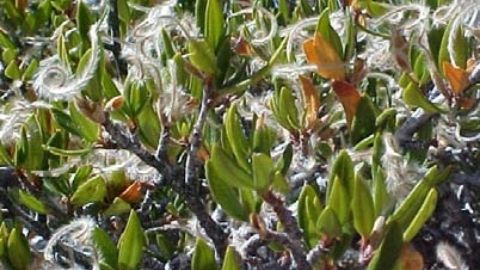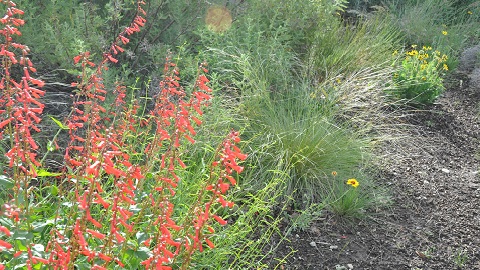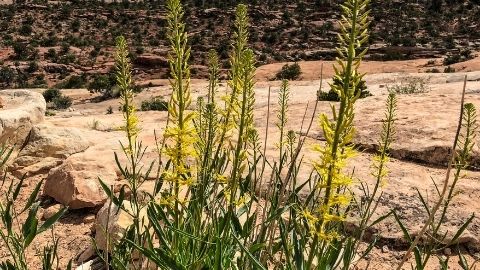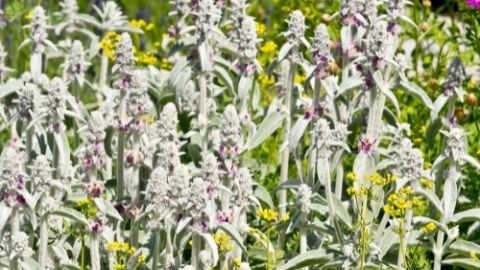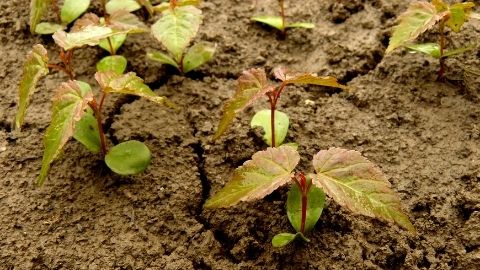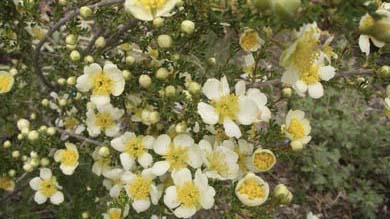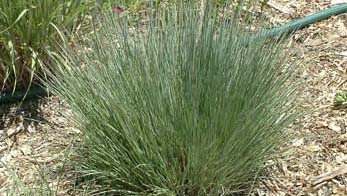Firecracker Penstemon in the Landscape
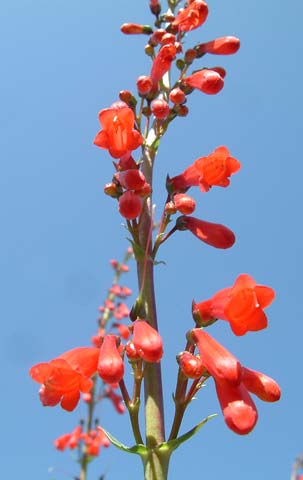
January 2009
Penstemon eatonii
Description
Bright scarlet flowers that shower from arching stems of firecracker penstemon have made this plant a favorite of many penstemon enthusiasts. The species is found throughout the West at elevations from 3,000 to 11,000 feet. It is adaptable to various soil textures but thrives in low-fertility soils. Like most penstemon species, its roots require excellent soil drainage. The bright red tubular flower makes it a favorite nectar source for hummingbirds. The common name for penstemon is ‘beardtongue’, named for the infertile stamen that protrudes from the flower and looks like a hairy tongue. Firecracker penstemon is cold-hardy all over the Intermountain West, and preliminary common garden trials indicate that seed source should not influence its hardiness.
Cultural Requirements:
| Native habitat | Widely distributed throughout the West. |
| Soil | Well drained, low fertility, pH 7.0-8.0 |
| Cold Tolerance | Zones 3 - 7 |
| Drought Tolerance | High |
| Salt Tolerance | Unknown |
| Sun/Shade Preference | Full sun to part shade |
| Propagation | Seed, stem cuttings, or division |
| Maintenance | Do not over-water or over-fertilize. Reseeds freely, so clip stalks after final bloom to prevent spreading. |
| Problems | Susceptible to lodging (stalks fall over) and root rot diseases if overwatered. |
Landscape Value:
| Use in the Landscape | Borders, accents, rock gardens; often recommended as cut flowers. | |||||||||||||||||||||||||||
| Foliage | Basal leaves are ovate, upper leaves are opposite and lanceolate and slightly curled. | |||||||||||||||||||||||||||
| Inflorescence | Showy. Will re-bloom if spent flowers are removed. | |||||||||||||||||||||||||||
| Color |
|
|||||||||||||||||||||||||||
| Fruit (seedheads) | Capsule | |||||||||||||||||||||||||||
| Form | Clumping, erect, few to many stems | |||||||||||||||||||||||||||
| Texture | Medium | |||||||||||||||||||||||||||
| Ultimate Size | 10-40 inches | |||||||||||||||||||||||||||
| Rate of Growth | Medium to fast; flowers in second year. | |||||||||||||||||||||||||||
| Plant Community | Most communities from subalpine to salt desert shrub. | |||||||||||||||||||||||||||
| Availability | ||||||||||||||||||||||||||||
| Cultivars | ‘Richfield Selection’ | |||||||||||||||||||||||||||
Propagation:
To start seed indoors, cold-moist stratify for up to 112 days, and sow into container to a depth of 1/8 inch. For sowing seed outdoors, sow seed in fall and cover with1/8 inch soil. Pre-soaking seed with 500 ppm gibberellic acid (GA) prior to cold-stratification may improve germination rate. Division of mature plants may be done in spring or fall.
Additional Photo:
USU Herbarium
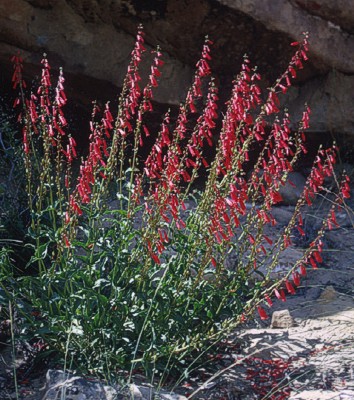
References
- Mee, W., J. Barnes, R. Kjelgren, R. Sutton, T. Cerny, and C. Johnson. 2003. Waterwise: Native Plants for Intermountain Landscapes. Utah State University Press, Logan, UT.
- Utah Water-wise Plants (Utah Division of Water Resources). 2008. URL: http://www.waterwiseplants.utah.gov
- USDA Plants Database. 2008. URL: http://plants.usda.gov
- Baskin, C. C. and J.M. 2002. Propagation protocol for production of container Penstemon eatonii Gray plants; University of Kentucky, Lexington, Kentucky. In: Native Plant Network. URL: http://www.nativeplantnetwork.org (accessed 2 January 2009). Moscow (ID): University of Idaho, College of Natural Resources, Forest Research Nursery.
- This fact sheet belongs to a series of fact sheets about Intermountain West native trees, shrubs, perennials, and grasses called “Native Plants in the Landscape.” Look for others in the series by visiting http://extension.usu.edu/htm/publications, then clicking on ‘Horticulture’ and ‘Native Plants’.
Authors
Heidi Kratsch, Extension Ornamental Horticulture Specialist; Graham Hunter, Research Associate, Center for Water Efficient Landscaping
Related Research



